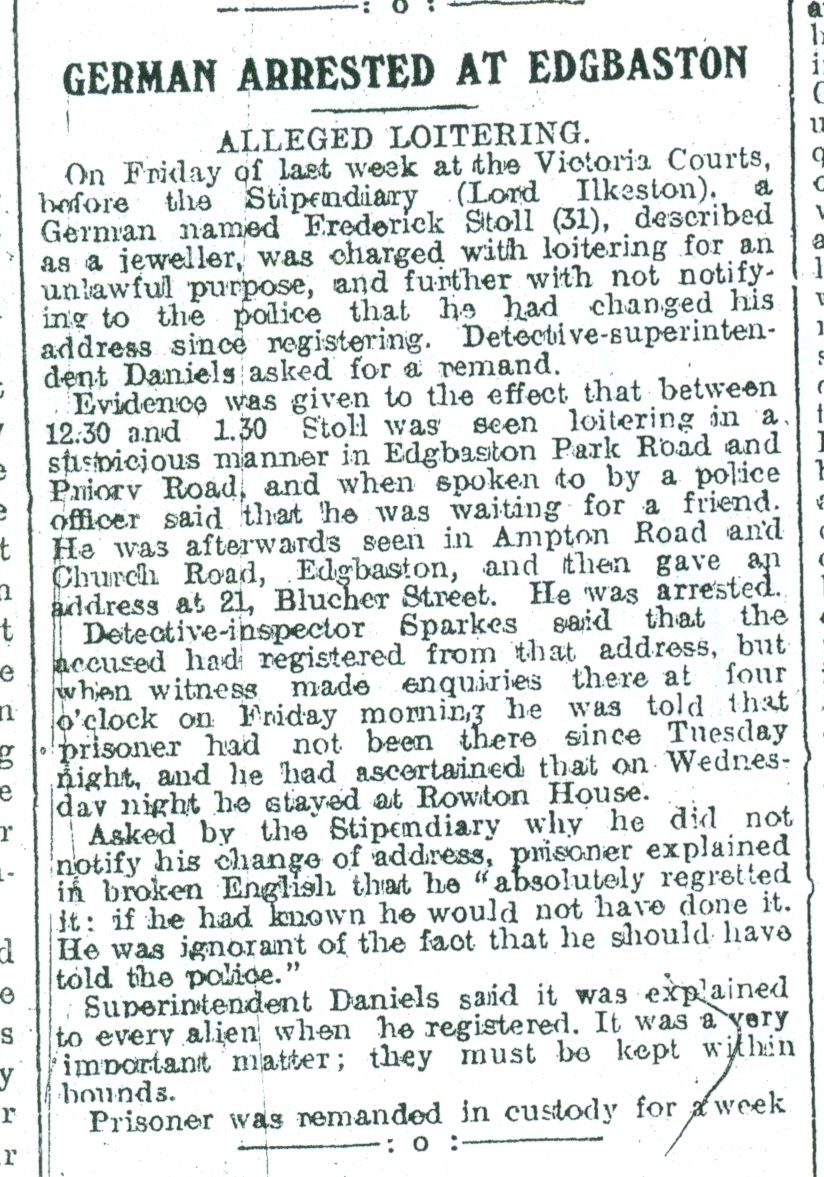THE BRUMMIE GERMANS
From 1998 to 2002 I did a considerable amount of research into the German community in Birmingham before 1914 and the destructive impact of the First World War upon it. Although complete I did not write it up so at some point in the future it will appear here.
It will begin with German visitors to the Soho Works in 1767 and will then examine trade and economic ties in the 19th century. There were links with Cadbury's and Josiah Mason's firm, the hardware trade and also the issue of trade competition with Joseph Chamberlain and his tariff reform campaign. Brassworkers visited Berlin in 1905. There were cultural, religious and social ties. There were German monks at Erdington Abbey and the Adderley/Norton family had links through the Grand Tour and the German Legion in the Crimean War. A City Council delegation visited Germany in 1910 to study town planning. A German Jewish community emerged. Brummie Germans were butchers, clerks, waiters and worked in jewellery and entertainment. Some became important citizens. George Boeddicker arrived in 1877 and had fought in the Franco-Prussian War. He became a company director and his son served as a RAMC major in the First World War. The German-born Pollack brothers became well known; Maurice was Liberal Mayor of Birmingham in 1887 and his brother became a leading music and theatre critic for the local press. Oscar's son, Maurice, was a famous child actor and was later killed in the First World War. Simon Leitner was a city merchant born in Bavaria. Extensive use was made of 19th century census returns.
Early in the research a database was created of the Aliens Register kept in the West Midlands Police Museum. 936 men and women registered with the police under emergency powers from August 6 1914 to June 1 1917. The register was very detailed and, for each person, gave where born, address, business address, date of arrival in Birmingham, occupation, age, previous abode, marriage partners and children, any previous military service, ultimate fate and. for some, physical descriptions. 259 men were arrested and interned, mainly in camps at Handforth and Newbury Racecourse. 58 were clerks of various kinds and 27 were waiters. 252 married women were listed; some were German by marriage. 94 women were allowed to leave the country for a neutral state via London and Tilbury. Places of work included Avery's, Cadburys, Dunlop Rubber, GEC, Elkingtons and the Grand Hotel.
The database was reinforced with newspaper research. Some Brummies were 'trapped' in Germany by the declaration of war and their stories were told. Public attitudes are revealed in newspaper editorials and letters. The spy hysteria was recorded. There were disputes over pre-war trade links such as having suppliers in Germany and encouragement to capture German trade. The impact of the sinking of the Lusitania in May 1915 featured as well the loyal petition to the Lord Mayor by naturalised Germans. There was a row over German teaching in schools and the case of the Reverend Gertrude von Petzold is of considerable interest.


